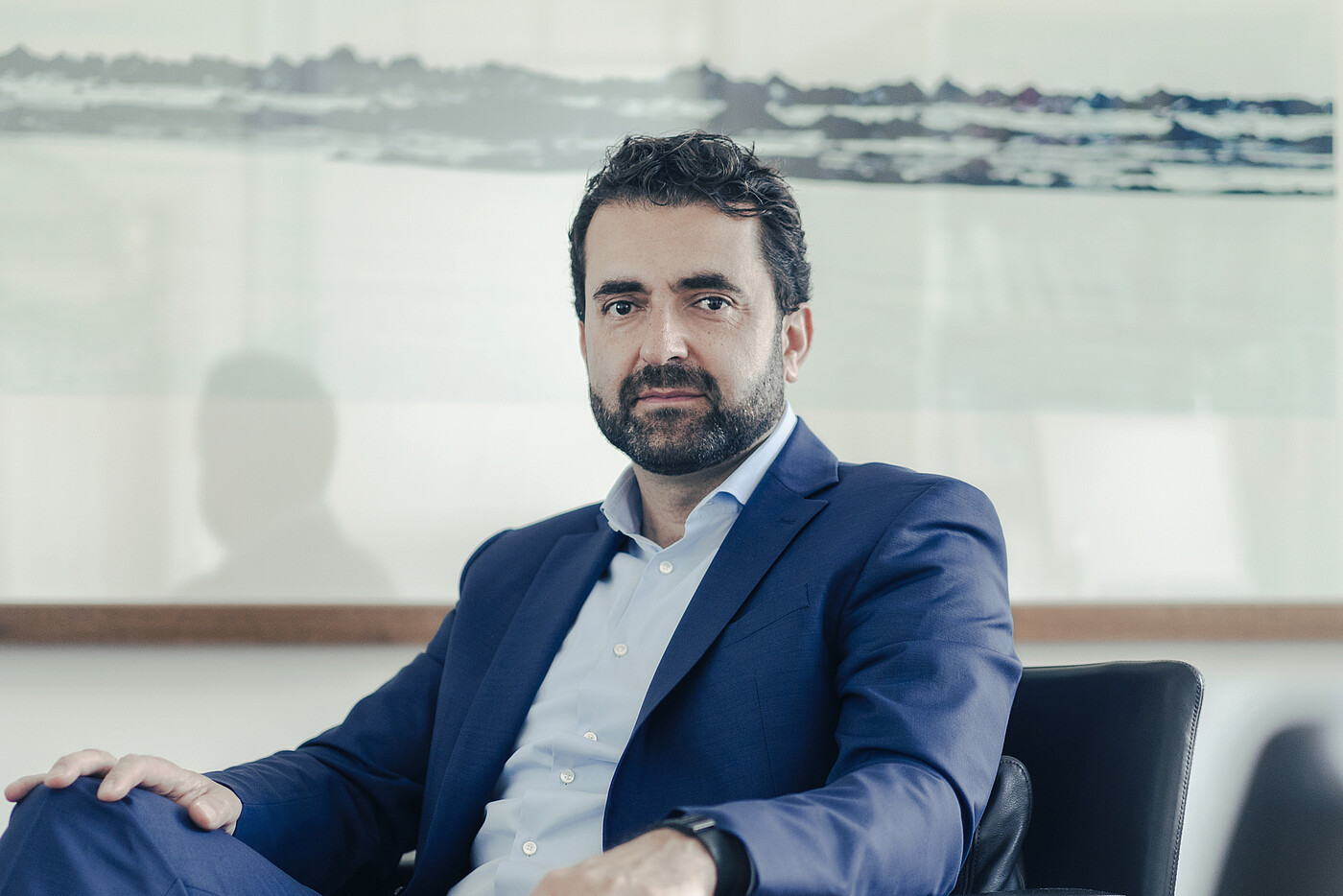Winter has come – and with it a rise in energy consumption. Since the start of Russia’s war on Ukraine in February this year, energy prices have shot up. Companies and consumers alike now have to reckon with huge increases in gas and electricity prices in the face of ever-decreasing gas supply from Russia and in spite of the German government’s many efforts to procure gas from other parts of the world. Our Civey survey among employers and employees investigated the impact this trend is having on the world of work.
Gas imports versus breaches of human rights
To replace gas that is not being supplied by Russia, more gas from Norway, the Netherlands and Belgium is being imported. But new contracts for liquefied natural gas are also being signed with countries like Qatar to cover our requirements in the future. Germany plans to procure a total of two million tonnes of liquefied gas from Qatar in 2026. Criticism of this new deal is loud however – at least in the public’s perception. Our numbers paint a different picture.
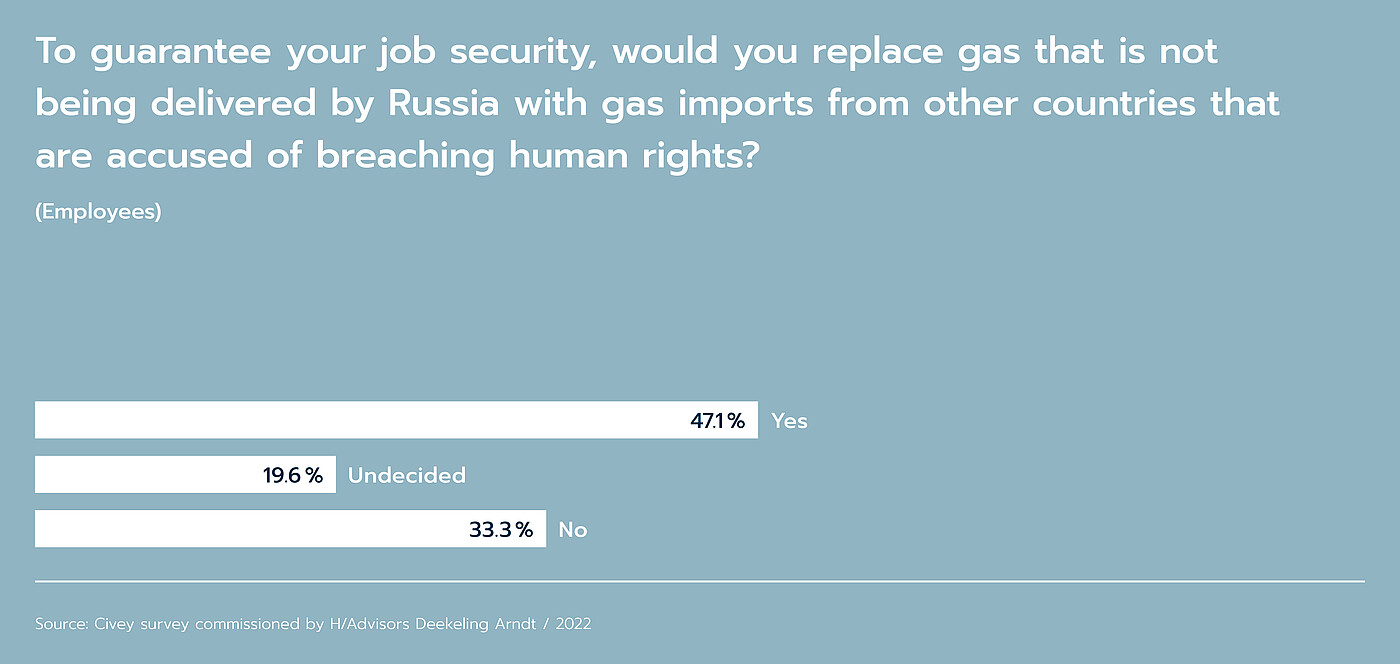
To bridge the gas crisis in Europe, almost half of employees consider it legitimate to import gas from countries that are accused of breaching human rights. Nevertheless, 33 percent, i.e. one-third, of employees, consider it morally unacceptable to place gas supply over breaches of human rights.
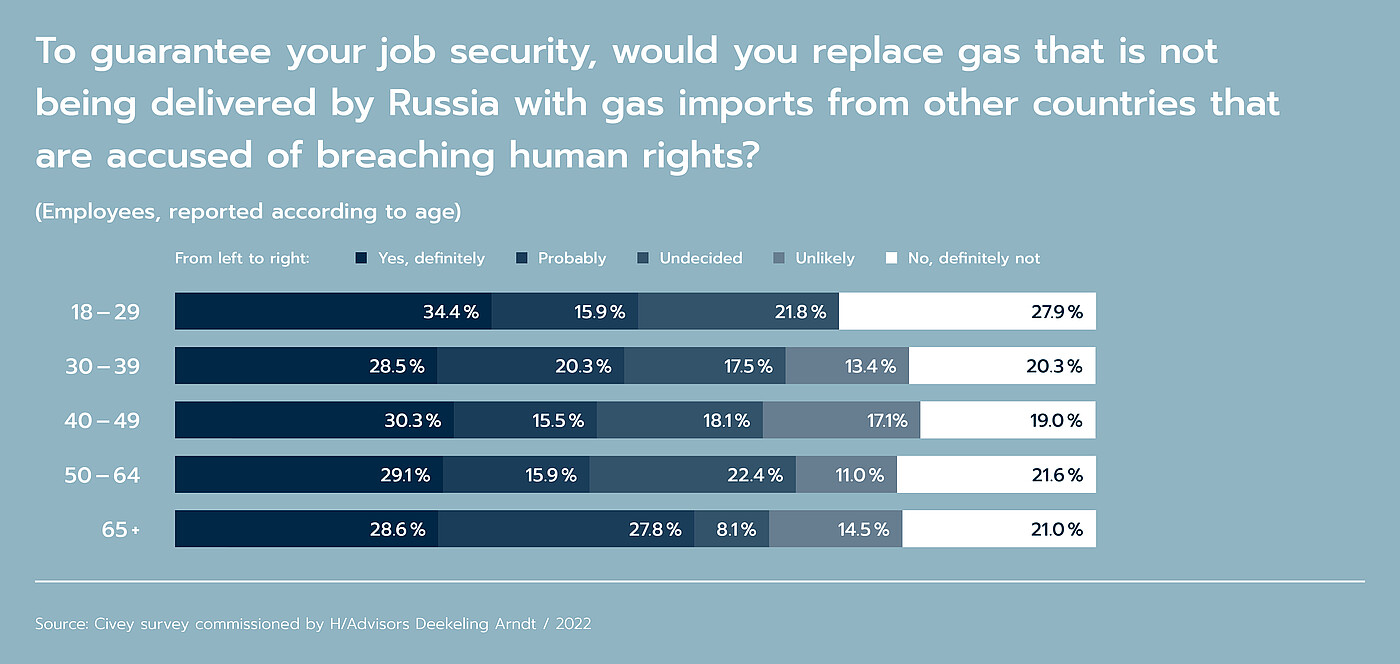
A look at age groups indicates that the young population between 18 and 29 years old take a more extreme stance with regard to supply from countries like Qatar. They are at the top of the pile among the age groups when it comes to both accepting and rejecting this idea, with almost 35 percent responding to the question with “yes, definitely” and almost 28 percent responding with “no, definitely not”.
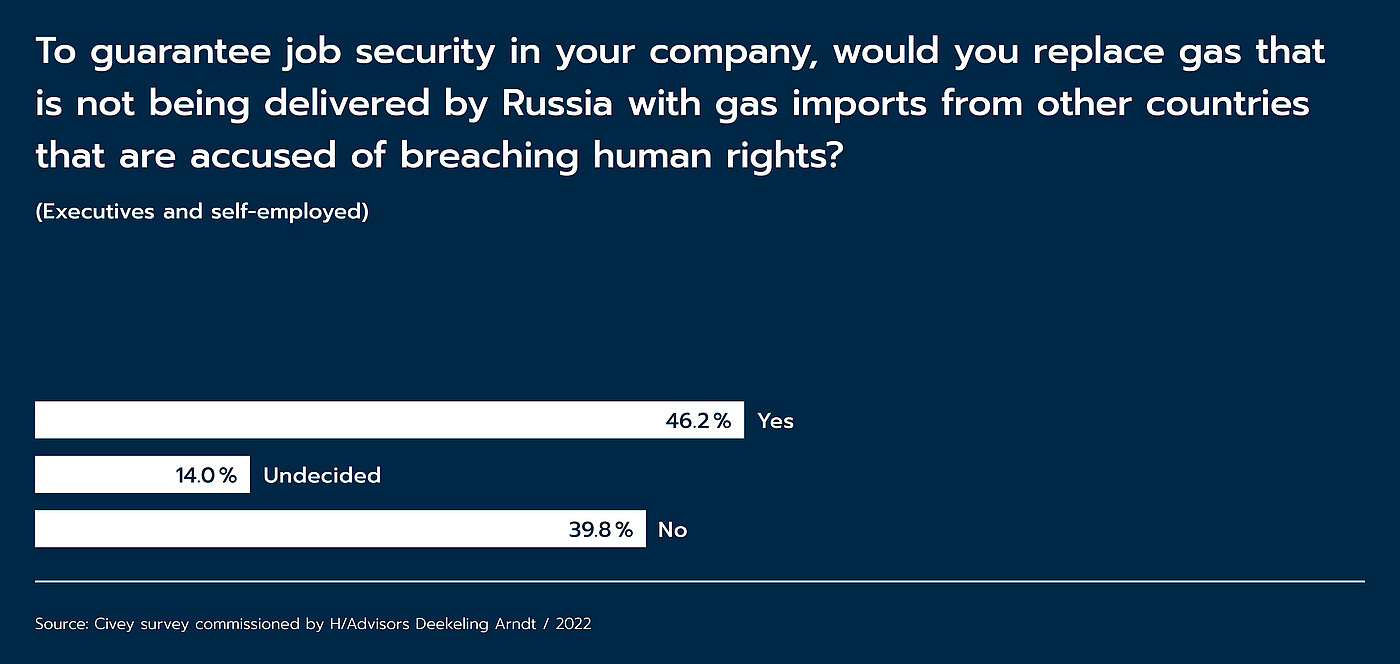
Among employers, too, over 46 percent expressed their willingness to replace Russian gas with gas from countries that are accused of breaching human rights in order to secure jobs at their company. But here again, the group of those who would not accept such agreements is large, with almost 40 percent of employers responding “no”.
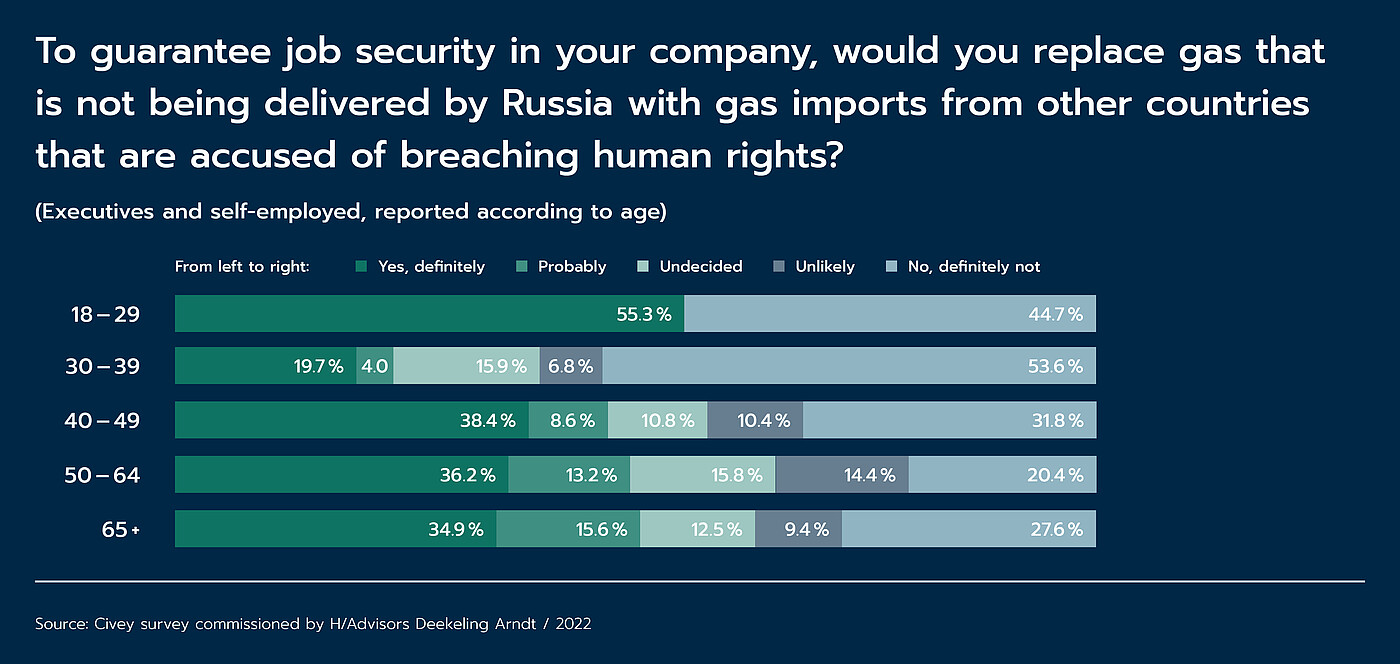
Here, too, the younger generation of employers is divided, with 55 percent responding with “yes, definitely” and almost 45 percent with “no, definitely not”. None of the respondents in this age group was uncertain or tended slightly in one direction. In the 30 to 39 age group, on the other hand, only just under 25 percent said that they would definitely or “probably” agree with gas being supplied from countries accused of breaching human rights. The majority – just under 54 percent – of this age group rejected it.
Setting priorities – currently important factors
During crises, business activity is often turned on its head. Economic models and plans for the future have to be reviewed. And external influencing factors such as political action play a key role for companies.
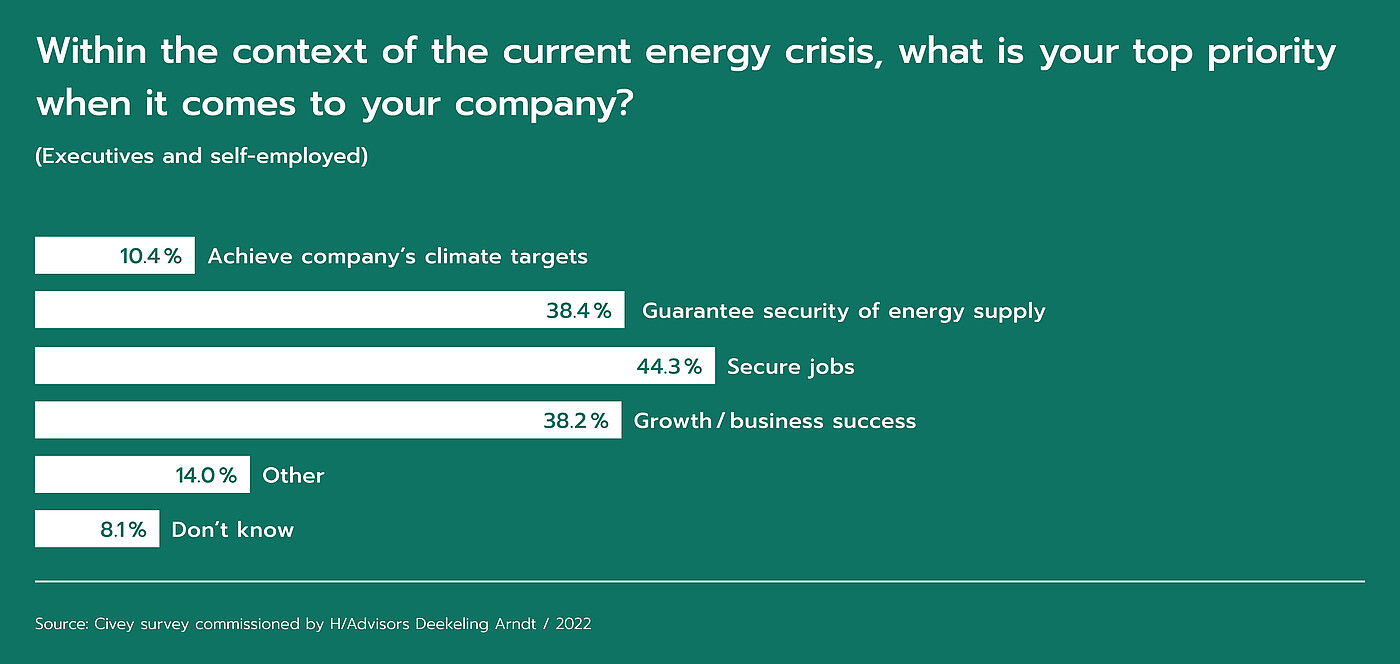
According to our survey, the most important factor for employers is to be able to secure their employees’ jobs (44 percent). And the company’s growth as well as business success are also important to them (38 percent). Equally important is that energy security is guaranteed (38 percent). Climate targets rank much further down, at 10 percent.
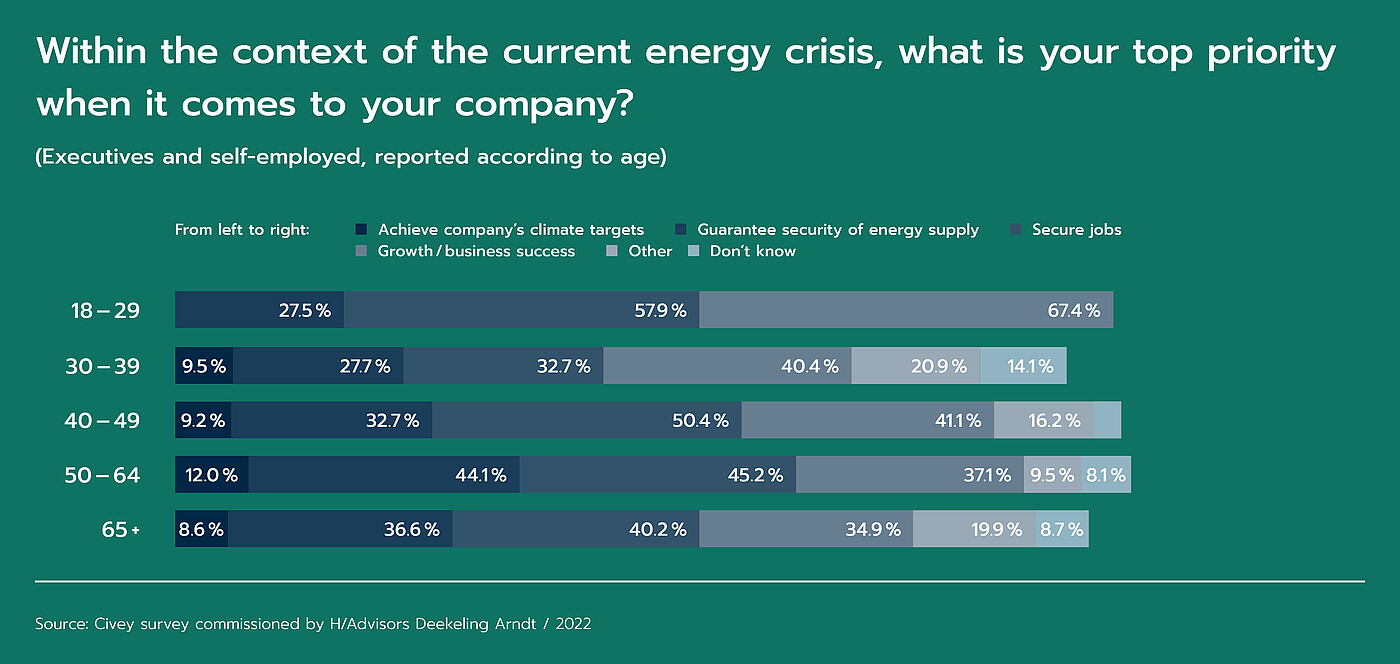
Energy crisis overshadows climate targets
Rising energy costs are demanding a lot from German companies. Nevertheless, the industry plans to continue to comply with the climate targets for 2035 and 2045, according to the BDI (Federation of German Industry). However, as the question above indicates, companies may temporarily reduce or stop their efforts to meet the climate targets since investment has to be stopped for the moment.
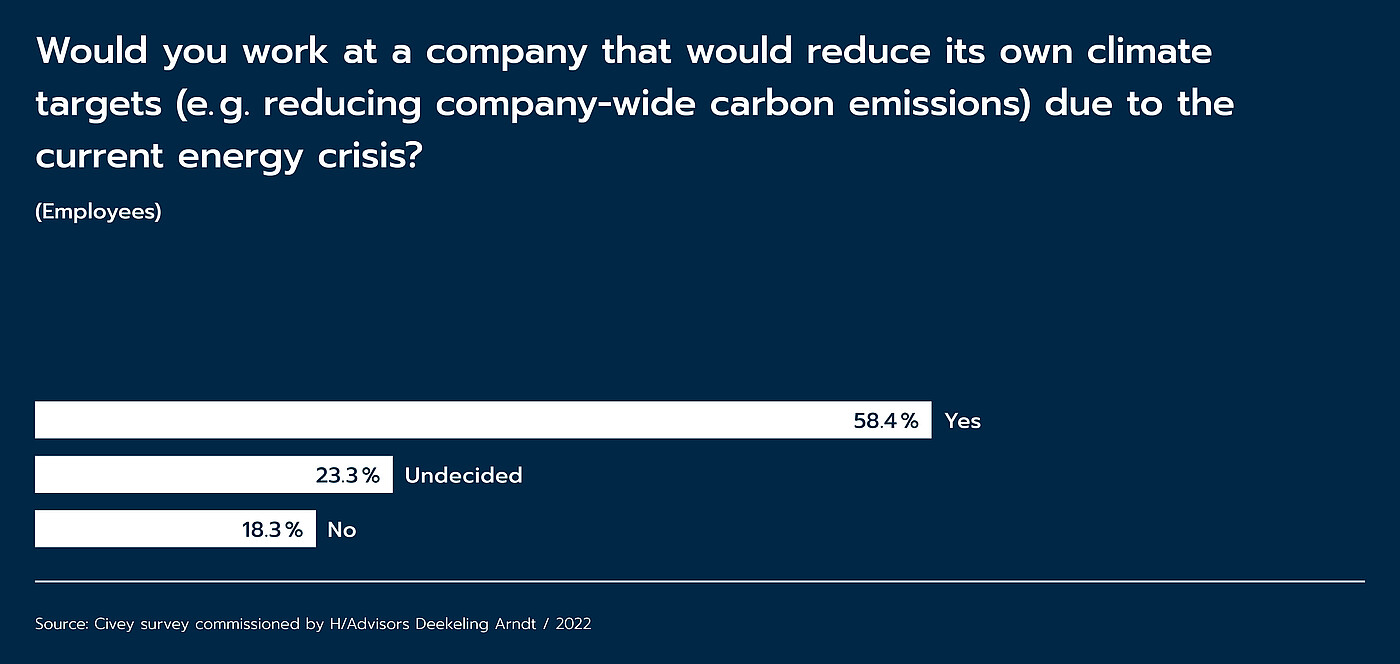
Employees express understanding for their employer if they have to decrease their own climate targets due to the energy crisis. Almost 60 percent respond to this question with “yes”.
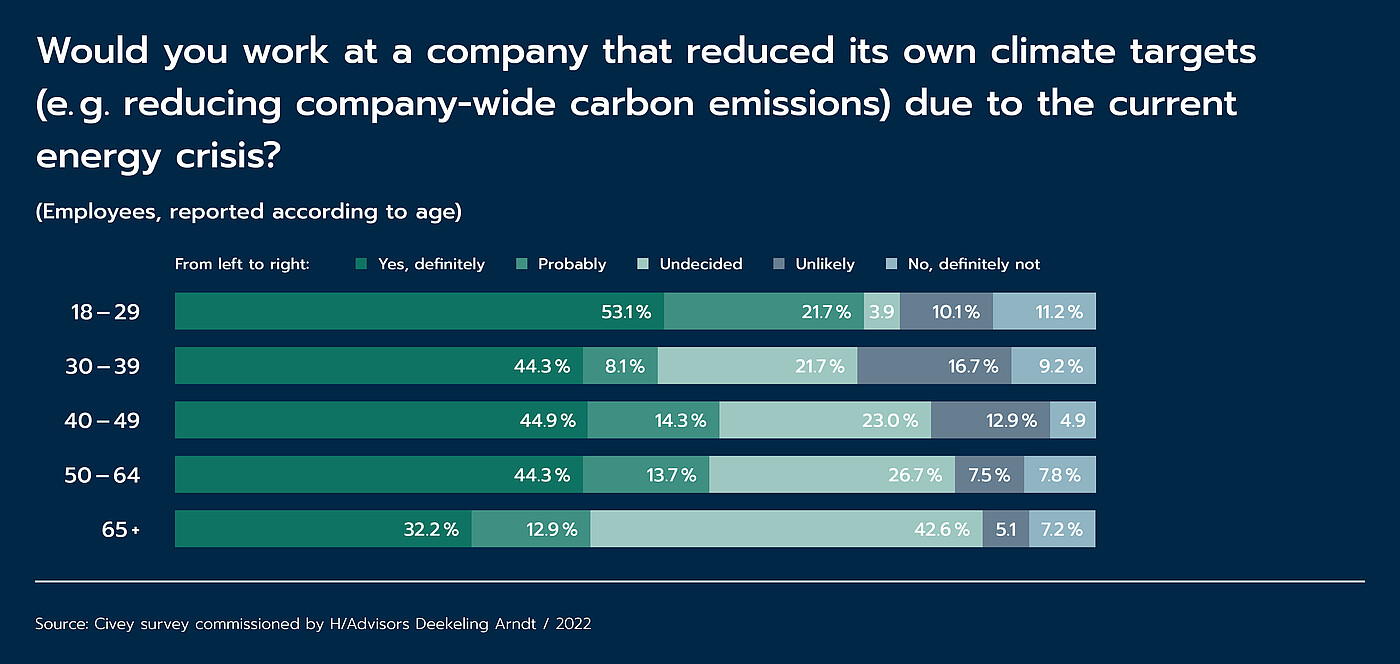
In spite of big movements like “Last Generation” and “Fridays for Future”, employees in the 18 to 29 age group appear not to have a problem with their employer halting climate targets. Almost 75 percent responded “yes” and only 11 percent did not agree with the idea of halting climate targets. By contrast, almost half of the over 65 age group is more uncertain when it comes to reducing climate targets in their company.
Energy savings with mandatory working-from-home arrangements
Since Covid, working from home has become a frequently used tool to keep operations going in spite of crisis. New mandatory working-from-home arrangements are now being considered due to the energy crisis. The Otto Group announced in October that they would be reducing room temperature to 15 degrees Celsius at several locations, and in some cases even to 6 degrees Celsius, and that their workforce would be working from home. The “Klimaneutrale Bundesverwaltung” (climate-neutral government administration) coordination office has just recommended to ministries to close their offices from 19 December until 6 January and to have their employees work from home. This was called an “energy lockdown for the government” in the “Pioneer” online magazine on 6 December 2022. This may lead to fewer car commutes and fuel consumption, and lower heating and maintenance costs – but the question remains who will then pay the increasing energy consumption costs of private households.
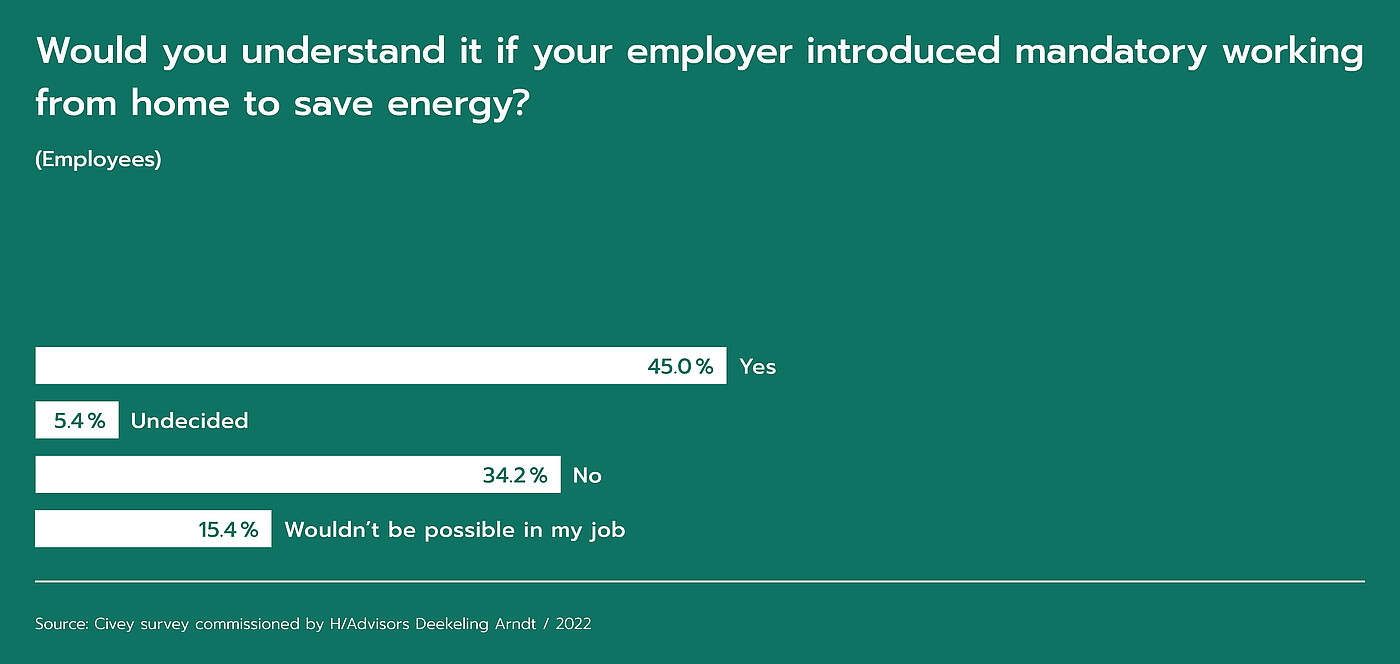
Employees are divided when it comes to new working-from-home mandates. While 45 percent understand this decision by their employer, almost 35 percent are nevertheless against the introduction of working from home to save energy.
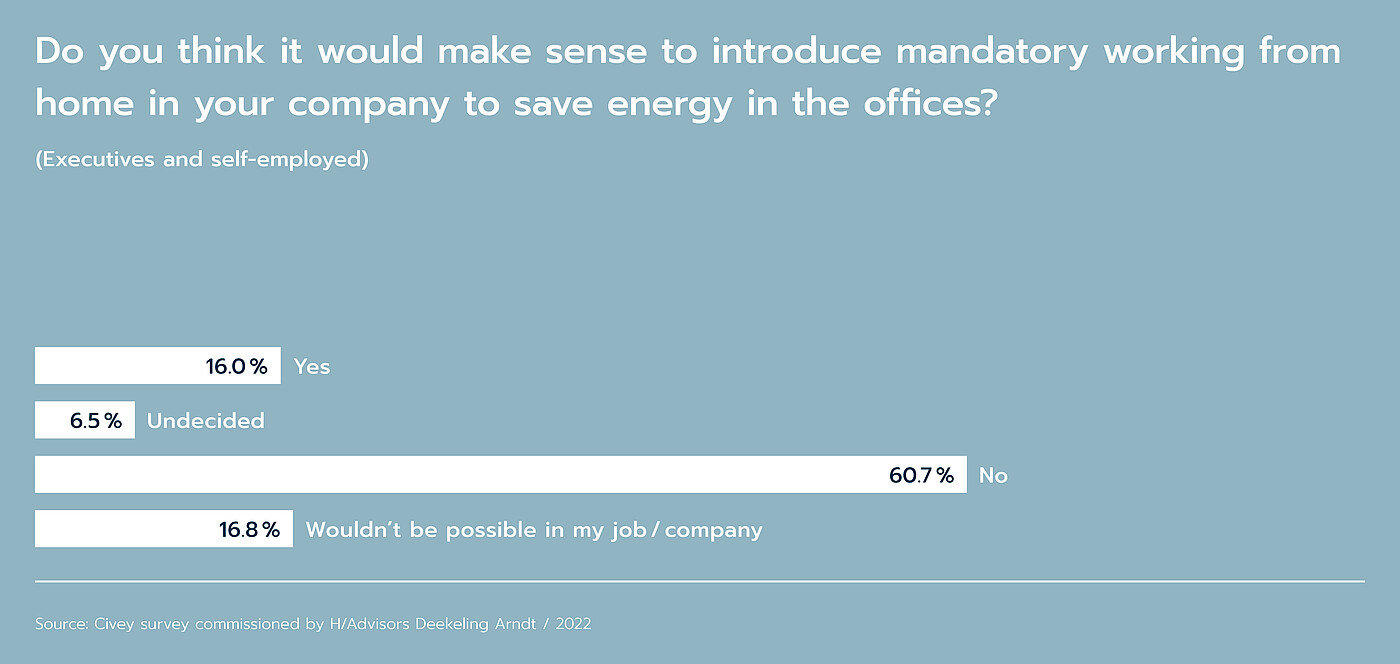
Over 60 percent of employers on the other hand reject the introduction of mandatory working-from-home arrangements in their company to save energy. Only 16 percent responded with “yes”.
Between 27 October 2022 and 6 November 2022, Civey carried out an online survey for H/Advisors Deekeling Arndt of 1,000 employees as well as 1,000 executives and self-employed persons from 18 years old upwards. Due to selection quotas and weighting the results are representative with a statistical error of 5.6 %. You can find more information about the method used here.
Photo: iStock.com/AndreyPopov

 LinkedIn
LinkedIn
 Twitter / X
Twitter / X

